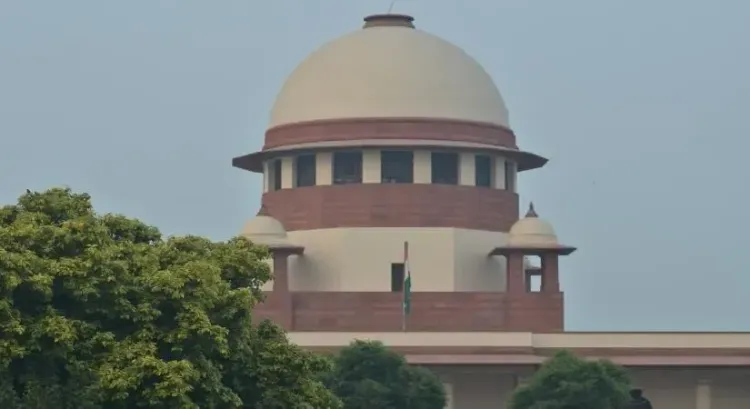Supreme Court Disapproves of Registry's Decision to Omit Cases Due to Procedural Issues

New Delhi, Dec 24 (NationPress) A 2-judge Bench of the Supreme Court has expressed disapproval of the registry’s decision to omit listing cases due to procedural issues.
A bench led by Justice Abhay S. Oka stated that when there is a judicial order mandating the listing of cases specifically designated to a particular Bench, the registry cannot ignore the order and choose not to list the cases citing non-compliance with procedural rules.
In this particular instance, six petitions were not listed even after the apex court directed their listing, based on the reasoning that the advocate representing the petitioner had failed to provide proof of service of copies of the pleas to the caveators.
The apex court registry based its decision on Rule 2 of Order XV of the Supreme Court Rules, 2013, which mandates that the petitioner must serve notice of the caveat along with a copy of the petition to the caveator.
Taking a serious stance, the Bench, which also included Justice A.G. Masih, indicated that no provision in the Supreme Court Rules, 2013 states that a case cannot be listed before the court purely due to non-compliance with the requirements of Rule 2 of Order XV, even in the presence of a court directive to list it.
"In situations of extreme urgency, the registry is not permitted to rely on Rule 2 of Order XV to deny listing the case. Hence, when there is a court direction to list SLPs/appeals despite non-compliance with Rule 2 of Chapter XV of the Rules, the Registry is obligated to list the case before the Court with an office report that highlights the petitioner/appellant's failure to meet the requirements of Rule 2 of Order XV of the Rules," it stated.
Instructing the Registrar (Judicial) to pay attention to its order, the Justice Oka-led Bench emphasized that such instances of ignoring judicial orders should not recur.
It clarified that in an appeal or a Special Leave Petition, a caveator does not possess the right to be heard on the matter of granting leave or admitting the appeal but is entitled to a hearing regarding requests for interim relief.
A caveat acts as a notice submitted to an appellate court by a litigant who seeks to be heard in the event that any orders are made regarding an opponent's appeal challenging the decision made by a lower judicial or quasi-judicial authority.







